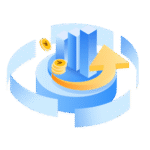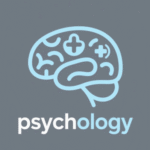-
Tina changed the description of the group
 Sociology Club from “The Sociology Club is an online community for students aged 14–18 who are curious about how society functions, the role of institutions, and the dynamics of human behavior. This club offers an engaging platform for students to explore sociological theories, examine social structures, and analyze contemporary social issues. Through discussions, research projects, and interactive activities, members will gain insight into the social forces that shape individuals, groups, and societies.
Sociology Club from “The Sociology Club is an online community for students aged 14–18 who are curious about how society functions, the role of institutions, and the dynamics of human behavior. This club offers an engaging platform for students to explore sociological theories, examine social structures, and analyze contemporary social issues. Through discussions, research projects, and interactive activities, members will gain insight into the social forces that shape individuals, groups, and societies.
What We Explore and Learn:Weekly discussions on key sociological concepts such as social stratification, culture, deviance, gender, and race
Analysis of current social issues like inequality, urbanization, globalization, and environmental justice
Exploration of social institutions like family, education, and the media, and their impact on society
Case studies examining historical and contemporary social movements, such as civil rights, feminism, and labor rights
Guest speakers from sociologists, activists, and experts who provide real-world perspectives on social issues
Collaborative research projects where members can investigate and present sociological topics or issues that interest them
Club Rules and Guidelines:
Eligibility: Open to students aged 14–18 with an interest in sociology and social issues.
Attendance: Members should attend at least two sessions per month.
Participation: Active engagement in discussions, research, and group projects is encouraged.
Respect: Respect diverse viewpoints and experiences, especially when discussing sensitive topics like race, gender, and identity.
Integrity: Research and work should be original, and all sources must be cited properly.
Collaboration: Members should work together to share ideas, conduct research, and analyze sociological data.
Ethics: Handle sensitive topics with care, ensuring discussions are respectful and inclusive of all perspectives.
Preparation: Members should review session materials or readings beforehand to contribute meaningfully.
Digital Conduct: Be respectful and professional in all online interactions and discussions.
Consequences: Violating the club’s rules or disrupting the group’s activities may result in suspension or removal from the club.
The Sociology Club provides students with a deeper understanding of the social forces shaping the world around us. Join us to explore the complexities of human behavior, analyze societal structures, and contribute to meaningful discussions on social change.” to “The Sociology Club is an online community for students aged 14–18 who are curious about how society functions, the role of institutions, and the dynamics of human behavior. This club offers an engaging platform for students to explore sociological theories, examine social structures, and analyze contemporary social issues. Through discussions, research projects, and interactive activities, members will gain insight into the social forces that shape individuals, groups, and societies.
What We Explore and Learn:Weekly discussions on key sociological concepts such as social stratification, culture, deviance, gender, and race
Analysis of current social issues like inequality, urbanization, globalization, and environmental justice
Exploration of social institutions like family, education, and the media, and their impact on society
Case studies examining historical and contemporary social movements, such as civil rights, feminism, and labor rights
Guest speakers from sociologists, activists, and experts who provide real-world perspectives on social issues
Collaborative research projects where members can investigate and present sociological topics or issues that interest themClub Rules and Guidelines:
Eligibility: Open to students aged 14–18 with an interest in sociology and social issues.
Attendance: Members should attend at least two sessions per month.
Participation: Active engagement in discussions, research, and group projects is encouraged.
Respect: Respect diverse viewpoints and experiences, especially when discussing sensitive topics like race, gender, and identity.
Integrity: Research and work should be original, and all sources must be cited properly.
Collaboration: Members should work together to share ideas, conduct research, and analyze sociological data.
Ethics: Handle sensitive topics with care, ensuring discussions are respectful and inclusive of all perspectives.
Preparation: Members should review session materials or readings beforehand to contribute meaningfully.
Digital Conduct: Be respectful and professional in all online interactions and discussions.
Consequences: Violating the club’s rules or disrupting the group’s activities may result in suspension or removal from the club.The Sociology Club provides students with a deeper understanding of the social forces shaping the world around us. Join us to explore the complexities of human behavior, analyze societal structures, and contribute to meaningful discussions on social change.” 8 months ago
8 months ago -
Tina changed the description of the group
 Model UN Club from “The Model United Nations (MUN) Club is an online community for students aged 14–18 who are passionate about international relations, diplomacy, and global affairs. This club offers an exciting opportunity for students to engage in simulation-based activities where they represent countries, debate key issues, and work together to draft resolutions that address real-world problems. Through MUN conferences and sessions, members will develop essential skills in negotiation, public speaking, research, and critical thinking.
Model UN Club from “The Model United Nations (MUN) Club is an online community for students aged 14–18 who are passionate about international relations, diplomacy, and global affairs. This club offers an exciting opportunity for students to engage in simulation-based activities where they represent countries, debate key issues, and work together to draft resolutions that address real-world problems. Through MUN conferences and sessions, members will develop essential skills in negotiation, public speaking, research, and critical thinking.
What We Explore and Do:Weekly sessions on topics related to global diplomacy, international law, and the role of the United Nations
Preparation for MUN conferences, where students represent different countries and discuss global challenges such as climate change, conflict resolution, and human rights
Debates on key international issues, including politics, economics, security, and social justice
Collaborative projects to draft resolutions, create working papers, and negotiate solutions to complex global problems
Guest speakers from diplomats, UN officials, and international relations experts who share real-world experiences and insights
Opportunities to participate in MUN conferences, either virtually or in person, and compete for awards in various categories (Best Delegate, Best Resolution, etc.)
Club Rules and Guidelines:
Eligibility: Open to students aged 14–18 with an interest in international relations and diplomacy.
Attendance: Members must attend at least two sessions per month to stay active.
Participation: Active involvement in debates, research, and collaboration is encouraged.
Respect: Always approach discussions with respect for diverse viewpoints and engage constructively in debates.
Preparation: Members should research their assigned countries, issues, and topics before MUN sessions and conferences.
Integrity: All members must demonstrate honesty in representing their assigned countries and adhering to the guidelines of the MUN process.
Collaboration: Work together to create well-researched solutions and support team members during MUN conferences.
Digital Conduct: Maintain professionalism and respect during all online meetings and events.
Ethics: Respect the rules of diplomacy, avoiding personal attacks and ensuring discussions remain respectful and solution-focused.
Consequences: Any disruptive behavior, dishonesty, or failure to follow the rules may result in removal from the club or suspension from events.
The Model UN Club provides a unique platform for students to understand global diplomacy, hone leadership skills, and become active participants in shaping a better world. Join us to represent countries, solve global issues, and make your voice heard on the international stage.” to “The Model United Nations (MUN) Club is an online community for students aged 14–18 who are passionate about international relations, diplomacy, and global affairs. This club offers an exciting opportunity for students to engage in simulation-based activities where they represent countries, debate key issues, and work together to draft resolutions that address real-world problems. Through MUN conferences and sessions, members will develop essential skills in negotiation, public speaking, research, and critical thinking.
What We Explore and Do:Weekly sessions on topics related to global diplomacy, international law, and the role of the United Nations
Preparation for MUN conferences, where students represent different countries and discuss global challenges such as climate change, conflict resolution, and human rights
Debates on key international issues, including politics, economics, security, and social justice
Collaborative projects to draft resolutions, create working papers, and negotiate solutions to complex global problems
Guest speakers from diplomats, UN officials, and international relations experts who share real-world experiences and insights
Opportunities to participate in MUN conferences, either virtually or in person, and compete for awards in various categories (Best Delegate, Best Resolution, etc.)Club Rules and Guidelines:
Eligibility: Open to students aged 14–18 with an interest in international relations and diplomacy.
Attendance: Members must attend at least two sessions per month to stay active.
Participation: Active involvement in debates, research, and collaboration is encouraged.
Respect: Always approach discussions with respect for diverse viewpoints and engage constructively in debates.
Preparation: Members should research their assigned countries, issues, and topics before MUN sessions and conferences.
Integrity: All members must demonstrate honesty in representing their assigned countries and adhering to the guidelines of the MUN process.
Collaboration: Work together to create well-researched solutions and support team members during MUN conferences.
Digital Conduct: Maintain professionalism and respect during all online meetings and events.
Ethics: Respect the rules of diplomacy, avoiding personal attacks and ensuring discussions remain respectful and solution-focused.
Consequences: Any disruptive behavior, dishonesty, or failure to follow the rules may result in removal from the club or suspension from events.The Model UN Club provides a unique platform for students to understand global diplomacy, hone leadership skills, and become active participants in shaping a better world. Join us to represent countries, solve global issues, and make your voice heard on the international stage.” 8 months ago
8 months ago -
Tina changed the description of the group
 Political Science Club from “The Political Science Club is an online academic community for students aged 14–18 who are passionate about politics, governance, and the global political landscape. This club provides an engaging space for students to explore political systems, ideologies, and the role of government, while encouraging critical thinking and active participation in discussions on current events and political theory.
Political Science Club from “The Political Science Club is an online academic community for students aged 14–18 who are passionate about politics, governance, and the global political landscape. This club provides an engaging space for students to explore political systems, ideologies, and the role of government, while encouraging critical thinking and active participation in discussions on current events and political theory.
What We Explore and Learn:Weekly sessions on political systems, government structures, political ideologies, and public policy
Exploration of key topics such as democracy, authoritarianism, international relations, and political economy
Discussions on contemporary issues like elections, political campaigns, global conflicts, and human rights
Case studies analyzing political events, movements, and landmark decisions in history
Debates on political philosophy and ethical dilemmas in politics
Guest speakers from political analysts, lawmakers, and activists who share real-world insights
Collaborative projects on policy proposals, political campaigns, and community activism
Club Rules and Guidelines:
Eligibility: Open to students aged 14–18 with an interest in politics and political science.
Attendance: Members should attend at least two sessions per month to remain active.
Participation: Active engagement in discussions, debates, and projects is essential.
Respect: Respect diverse opinions and engage constructively in discussions and debates.
Integrity: Members must present original ideas and properly cite sources when referencing data or opinions.
Collaboration: Students are encouraged to work together on group projects and activities.
Ethics: Approach sensitive political topics with respect and ensure all discussions are appropriate and respectful.
Preparation: Members should come prepared by reading assigned materials or staying updated on relevant political events.
Digital Conduct: Maintain a professional and respectful tone in all online interactions.
Consequences: Disruptive behavior or violation of guidelines may result in removal from the club.
The Political Science Club is an excellent place to deepen your understanding of politics, refine your debate skills, and engage with others who share your interest in shaping the world. Join us to explore the forces that influence societies, nations, and the world stage.” to “The Political Science Club is an online academic community for students aged 14–18 who are passionate about politics, governance, and the global political landscape. This club provides an engaging space for students to explore political systems, ideologies, and the role of government, while encouraging critical thinking and active participation in discussions on current events and political theory.
What We Explore and Learn:Weekly sessions on political systems, government structures, political ideologies, and public policy
Exploration of key topics such as democracy, authoritarianism, international relations, and political economy
Discussions on contemporary issues like elections, political campaigns, global conflicts, and human rights
Case studies analyzing political events, movements, and landmark decisions in history
Debates on political philosophy and ethical dilemmas in politics
Guest speakers from political analysts, lawmakers, and activists who share real-world insights
Collaborative projects on policy proposals, political campaigns, and community activismClub Rules and Guidelines:
Eligibility: Open to students aged 14–18 with an interest in politics and political science.
Attendance: Members should attend at least two sessions per month to remain active.
Participation: Active engagement in discussions, debates, and projects is essential.
Respect: Respect diverse opinions and engage constructively in discussions and debates.
Integrity: Members must present original ideas and properly cite sources when referencing data or opinions.
Collaboration: Students are encouraged to work together on group projects and activities.
Ethics: Approach sensitive political topics with respect and ensure all discussions are appropriate and respectful.
Preparation: Members should come prepared by reading assigned materials or staying updated on relevant political events.
Digital Conduct: Maintain a professional and respectful tone in all online interactions.
Consequences: Disruptive behavior or violation of guidelines may result in removal from the club.The Political Science Club is an excellent place to deepen your understanding of politics, refine your debate skills, and engage with others who share your interest in shaping the world. Join us to explore the forces that influence societies, nations, and the world stage.” 8 months ago
8 months ago -
Tina changed the description of the group
 Economics Club from “The Economics Club is an online community for students aged 14–18 who are interested in understanding how the economy works, how financial systems operate, and the impact of economic decisions on society. This club provides a space for students to dive into economic theory, engage in debates on current global issues, and gain practical insights into both macroeconomics and microeconomics.
Economics Club from “The Economics Club is an online community for students aged 14–18 who are interested in understanding how the economy works, how financial systems operate, and the impact of economic decisions on society. This club provides a space for students to dive into economic theory, engage in debates on current global issues, and gain practical insights into both macroeconomics and microeconomics.
What We Explore and Learn:Weekly sessions covering key economic concepts such as supply and demand, market structures, economic policy, and fiscal responsibility
Discussions on global economic issues like inflation, unemployment, trade, and international finance
Analysis of real-world economic events and case studies to understand their effects on individuals, businesses, and governments
Hands-on activities, including building economic models, analyzing market trends, and solving economic problems
Guest speakers from economists, financial analysts, and business leaders who offer insights into real-world economics
Introduction to economics-related careers, such as finance, policy-making, and business analysis
Opportunities to participate in economics challenges, competitions, and research projects
Club Rules and Guidelines:
Eligibility: Open to students aged 14–18 with an interest in economics.
Attendance: Members must attend at least two sessions per month.
Participation: Active involvement in discussions, activities, and projects is encouraged.
Respect: Listen to others’ viewpoints and engage in discussions respectfully, even when opinions differ.
Integrity: Work should be original, and sources should be properly cited when using data or research.
Collaboration: Students are encouraged to collaborate on group projects and share insights.
Ethics: When discussing economic policies or ideas, students should respect differing perspectives and approach sensitive topics carefully.
Preparation: Members should review session materials or readings beforehand to fully participate.
Digital Conduct: Be respectful and professional in all online interactions, maintaining a positive and productive atmosphere.
Consequences: Violations of the club’s rules may result in suspension or removal from the club.
The Economics Club is the perfect environment for students to understand the forces shaping our world. Join us to explore economic theories, tackle global challenges, and gain essential skills for the future.” to “The Economics Club is an online community for students aged 14–18 who are interested in understanding how the economy works, how financial systems operate, and the impact of economic decisions on society. This club provides a space for students to dive into economic theory, engage in debates on current global issues, and gain practical insights into both macroeconomics and microeconomics.
What We Explore and Learn:Weekly sessions covering key economic concepts such as supply and demand, market structures, economic policy, and fiscal responsibility
Discussions on global economic issues like inflation, unemployment, trade, and international finance
Analysis of real-world economic events and case studies to understand their effects on individuals, businesses, and governments
Hands-on activities, including building economic models, analyzing market trends, and solving economic problems
Guest speakers from economists, financial analysts, and business leaders who offer insights into real-world economics
Introduction to economics-related careers, such as finance, policy-making, and business analysis
Opportunities to participate in economics challenges, competitions, and research projectsClub Rules and Guidelines:
Eligibility: Open to students aged 14–18 with an interest in economics.
Attendance: Members must attend at least two sessions per month.
Participation: Active involvement in discussions, activities, and projects is encouraged.
Respect: Listen to others’ viewpoints and engage in discussions respectfully, even when opinions differ.
Integrity: Work should be original, and sources should be properly cited when using data or research.
Collaboration: Students are encouraged to collaborate on group projects and share insights.
Ethics: When discussing economic policies or ideas, students should respect differing perspectives and approach sensitive topics carefully.
Preparation: Members should review session materials or readings beforehand to fully participate.
Digital Conduct: Be respectful and professional in all online interactions, maintaining a positive and productive atmosphere.
Consequences: Violations of the club’s rules may result in suspension or removal from the club.The Economics Club is the perfect environment for students to understand the forces shaping our world. Join us to explore economic theories, tackle global challenges, and gain essential skills for the future.” 8 months ago
8 months ago -
Tina changed the description of the group
 Psychology Club from “The Psychology Club is an online community for students aged 14–18 who are fascinated by the human mind and behavior. This club provides an interactive space for students to explore psychological concepts, learn about mental health, and understand how individuals think, feel, and act. Through discussions, activities, and hands-on projects, members will gain valuable insight into the field of psychology while developing critical thinking and research skills.
Psychology Club from “The Psychology Club is an online community for students aged 14–18 who are fascinated by the human mind and behavior. This club provides an interactive space for students to explore psychological concepts, learn about mental health, and understand how individuals think, feel, and act. Through discussions, activities, and hands-on projects, members will gain valuable insight into the field of psychology while developing critical thinking and research skills.
What We Explore and Learn:Weekly sessions on key psychological topics such as cognitive development, behavioral psychology, abnormal psychology, and social influence
Exploration of major psychological theories and concepts from influential psychologists like Freud, Skinner, and Piaget
Discussions on mental health awareness, psychological disorders, and therapies
Opportunities to engage in psychological experiments, case studies, and behavioral analysis
Guest speakers from psychology professionals, counselors, and mental health experts
Collaborative projects where members can design and conduct surveys or experiments
Insights into career paths in psychology, counseling, and related fields
Club Rules and Guidelines:
Eligibility: Open to students aged 14–18 with an interest in psychology.
Attendance: Members must attend at least two sessions per month to remain active.
Participation: Active engagement in discussions, activities, and group projects is encouraged.
Respect: Approach all discussions with respect for diverse perspectives and experiences.
Integrity: All research and case studies should be original, and sources must be properly cited.
Ethics: Ensure all psychological experiments or surveys follow ethical guidelines, especially when involving sensitive topics.
Confidentiality: Respect the privacy of members and any sensitive information shared during meetings.
Preparation: Members should read assigned materials and prepare questions or reflections for each session.
Digital Conduct: Maintain a respectful, professional tone in all online discussions and interactions.
Consequences: Violations of the club’s rules may result in suspension or removal from the club.
The Psychology Club is an ideal place for students to delve into the fascinating world of human behavior, broaden their understanding of psychological concepts, and develop a deeper appreciation for mental health. Join us to explore the complexities of the mind and unlock the mysteries of human behavior.” to “The Psychology Club is an online community for students aged 14–18 who are fascinated by the human mind and behavior. This club provides an interactive space for students to explore psychological concepts, learn about mental health, and understand how individuals think, feel, and act. Through discussions, activities, and hands-on projects, members will gain valuable insight into the field of psychology while developing critical thinking and research skills.
What We Explore and Learn:Weekly sessions on key psychological topics such as cognitive development, behavioral psychology, abnormal psychology, and social influence
Exploration of major psychological theories and concepts from influential psychologists like Freud, Skinner, and Piaget
Discussions on mental health awareness, psychological disorders, and therapies
Opportunities to engage in psychological experiments, case studies, and behavioral analysis
Guest speakers from psychology professionals, counselors, and mental health experts
Collaborative projects where members can design and conduct surveys or experiments
Insights into career paths in psychology, counseling, and related fieldsClub Rules and Guidelines:
Eligibility: Open to students aged 14–18 with an interest in psychology.
Attendance: Members must attend at least two sessions per month to remain active.
Participation: Active engagement in discussions, activities, and group projects is encouraged.
Respect: Approach all discussions with respect for diverse perspectives and experiences.
Integrity: All research and case studies should be original, and sources must be properly cited.
Ethics: Ensure all psychological experiments or surveys follow ethical guidelines, especially when involving sensitive topics.
Confidentiality: Respect the privacy of members and any sensitive information shared during meetings.
Preparation: Members should read assigned materials and prepare questions or reflections for each session.
Digital Conduct: Maintain a respectful, professional tone in all online discussions and interactions.
Consequences: Violations of the club’s rules may result in suspension or removal from the club.The Psychology Club is an ideal place for students to delve into the fascinating world of human behavior, broaden their understanding of psychological concepts, and develop a deeper appreciation for mental health. Join us to explore the complexities of the mind and unlock the mysteries of human behavior.” 8 months ago
8 months ago -
Tina changed the description of the group
 Literature Club from “The Literature Club is an online community for students aged 13–18 who love to read, discuss, and analyze literature. This club fosters a passion for reading, enhances literary analysis skills, and encourages students to explore a wide variety of genres, authors, and themes. Through engaging discussions and creative activities, members will develop a deeper appreciation for literature while honing their writing and analytical abilities.
Literature Club from “The Literature Club is an online community for students aged 13–18 who love to read, discuss, and analyze literature. This club fosters a passion for reading, enhances literary analysis skills, and encourages students to explore a wide variety of genres, authors, and themes. Through engaging discussions and creative activities, members will develop a deeper appreciation for literature while honing their writing and analytical abilities.
What We Explore and Do:Weekly discussions on books, novels, short stories, poetry, and plays from different genres and cultures
Focus on literary analysis, including themes, symbolism, character development, and narrative structure
Exploration of both classic works (Shakespeare, Dickens, etc.) and contemporary literature (modern authors, diverse voices)
Monthly book challenges, where members choose a book to read and discuss together
Creative writing workshops to explore fiction, poetry, and non-fiction writing
Opportunities to participate in literary contests, journals, and online publications
Guest authors and literary experts who share their insights and experiences
Collaborative book reviews, where members write and share critiques of their reading
Club Rules and Guidelines:
Eligibility: Open to students aged 13–18 with a genuine interest in literature.
Attendance: Members must attend at least two sessions per month.
Participation: Active participation in discussions, writing exercises, and book reviews is encouraged.
Respect: Respect others’ opinions and ideas during discussions, even if they differ from your own.
Originality: When submitting creative writing, work must be original, and plagiarism is strictly prohibited.
Collaboration: Collaboration is key—work together on group projects and share feedback constructively.
Preparation: Read the assigned material before meetings and come prepared to discuss or analyze.
Ethics: Avoid sharing or discussing harmful or inappropriate content in any form.
Digital Conduct: Maintain a respectful and professional tone during online discussions and activities.
Consequences: Any disruptive or inappropriate behavior will result in a warning or removal from the club.
The Literature Club is the perfect place for students to immerse themselves in stories, develop a love for reading, and strengthen their analytical and writing skills. Join us for a journey through words, ideas, and creativity.” to “The Literature Club is an online community for students aged 13–18 who love to read, discuss, and analyze literature. This club fosters a passion for reading, enhances literary analysis skills, and encourages students to explore a wide variety of genres, authors, and themes. Through engaging discussions and creative activities, members will develop a deeper appreciation for literature while honing their writing and analytical abilities.
What We Explore and Do:Weekly discussions on books, novels, short stories, poetry, and plays from different genres and cultures
Focus on literary analysis, including themes, symbolism, character development, and narrative structure
Exploration of both classic works (Shakespeare, Dickens, etc.) and contemporary literature (modern authors, diverse voices)
Monthly book challenges, where members choose a book to read and discuss together
Creative writing workshops to explore fiction, poetry, and non-fiction writing
Opportunities to participate in literary contests, journals, and online publications
Guest authors and literary experts who share their insights and experiences
Collaborative book reviews, where members write and share critiques of their readingClub Rules and Guidelines:
Eligibility: Open to students aged 13–18 with a genuine interest in literature.
Attendance: Members must attend at least two sessions per month.
Participation: Active participation in discussions, writing exercises, and book reviews is encouraged.
Respect: Respect others’ opinions and ideas during discussions, even if they differ from your own.
Originality: When submitting creative writing, work must be original, and plagiarism is strictly prohibited.
Collaboration: Collaboration is key—work together on group projects and share feedback constructively.
Preparation: Read the assigned material before meetings and come prepared to discuss or analyze.
Ethics: Avoid sharing or discussing harmful or inappropriate content in any form.
Digital Conduct: Maintain a respectful and professional tone during online discussions and activities.
Consequences: Any disruptive or inappropriate behavior will result in a warning or removal from the club.The Literature Club is the perfect place for students to immerse themselves in stories, develop a love for reading, and strengthen their analytical and writing skills. Join us for a journey through words, ideas, and creativity.” 8 months ago
8 months ago -
Tina changed the description of the group
 Philosophy Club from “The Philosophy Club is an online academic community for students aged 14–18 who are eager to explore fundamental questions about life, ethics, existence, knowledge, and reality. This club provides an engaging space for critical thinking, philosophical debates, and discussions on a wide range of topics that challenge our understanding of the world.
Philosophy Club from “The Philosophy Club is an online academic community for students aged 14–18 who are eager to explore fundamental questions about life, ethics, existence, knowledge, and reality. This club provides an engaging space for critical thinking, philosophical debates, and discussions on a wide range of topics that challenge our understanding of the world.
What We Explore and Discuss:Weekly sessions on classic and contemporary philosophical ideas, such as ethics, metaphysics, epistemology, and logic
Exploration of the works of famous philosophers like Socrates, Aristotle, Kant, and Nietzsche
Deep dives into modern topics like artificial intelligence, free will, political philosophy, and environmental ethics
Group discussions and debates on ethical dilemmas, societal issues, and personal belief systems
Analysis of philosophical texts and how they relate to modern life
Opportunities to develop arguments, challenge ideas, and improve critical thinking skills
Guest speakers from philosophy professors, ethicists, and thought leaders
Club Rules and Guidelines:
Eligibility: Open to students aged 14–18 who are curious about philosophy.
Attendance: Members must attend at least two sessions per month.
Participation: Active participation in discussions, debates, and activities is encouraged.
Respect: Listen to others’ viewpoints, engage respectfully, and maintain an open mind during debates.
Integrity: All work should be original. When referencing other philosophers or texts, proper citations are required.
Collaboration: Students are encouraged to work together on philosophical essays, projects, and presentations.
Critical Thinking: Members should come prepared to critically engage with ideas and question assumptions.
Digital Conduct: Maintain professionalism and respect in all online interactions and club activities.
Ethics: Discussions should be approached thoughtfully, especially on sensitive topics.
Consequences: Any violation of the rules may result in suspension or removal from the club.
The Philosophy Club is a place to question, discuss, and learn about the big ideas that have shaped humanity’s thinking. Join us to expand your understanding of the world and develop your philosophical mindset.” to “The Philosophy Club is an online academic community for students aged 14–18 who are eager to explore fundamental questions about life, ethics, existence, knowledge, and reality. This club provides an engaging space for critical thinking, philosophical debates, and discussions on a wide range of topics that challenge our understanding of the world.
What We Explore and Discuss:Weekly sessions on classic and contemporary philosophical ideas, such as ethics, metaphysics, epistemology, and logic
Exploration of the works of famous philosophers like Socrates, Aristotle, Kant, and Nietzsche
Deep dives into modern topics like artificial intelligence, free will, political philosophy, and environmental ethics
Group discussions and debates on ethical dilemmas, societal issues, and personal belief systems
Analysis of philosophical texts and how they relate to modern life
Opportunities to develop arguments, challenge ideas, and improve critical thinking skills
Guest speakers from philosophy professors, ethicists, and thought leadersClub Rules and Guidelines:
Eligibility: Open to students aged 14–18 who are curious about philosophy.
Attendance: Members must attend at least two sessions per month.
Participation: Active participation in discussions, debates, and activities is encouraged.
Respect: Listen to others’ viewpoints, engage respectfully, and maintain an open mind during debates.
Integrity: All work should be original. When referencing other philosophers or texts, proper citations are required.
Collaboration: Students are encouraged to work together on philosophical essays, projects, and presentations.
Critical Thinking: Members should come prepared to critically engage with ideas and question assumptions.
Digital Conduct: Maintain professionalism and respect in all online interactions and club activities.
Ethics: Discussions should be approached thoughtfully, especially on sensitive topics.
Consequences: Any violation of the rules may result in suspension or removal from the club.The Philosophy Club is a place to question, discuss, and learn about the big ideas that have shaped humanity’s thinking. Join us to expand your understanding of the world and develop your philosophical mindset.” 8 months ago
8 months ago -
Tina changed the description of the group
 History Club from “The History Club is an online community for students aged 13–18 who have a passion for exploring the past and understanding how historical events have shaped the world we live in today. This club provides a dynamic space for students to engage in discussions, conduct research, and learn about global history from ancient civilizations to modern times.
History Club from “The History Club is an online community for students aged 13–18 who have a passion for exploring the past and understanding how historical events have shaped the world we live in today. This club provides a dynamic space for students to engage in discussions, conduct research, and learn about global history from ancient civilizations to modern times.
What We Explore and Do:Weekly discussions on various historical periods and themes such as ancient history, world wars, revolutions, and cultural movements
Special focus on primary sources, historical documents, and how historians interpret events
Research projects on specific historical topics or famous figures, with guidance on writing research papers
Interactive timelines, virtual museum tours, and historical reenactments
Guest speakers including historians, archaeologists, and museum curators
Collaborative history debates and presentations on controversial historical issues
Opportunities to contribute to history blogs, journals, and participate in history-related contests or fairs
Club Rules and Guidelines:
Eligibility: Open to students aged 13–18 with a genuine interest in history.
Attendance: Members must attend at least two sessions per month to remain active.
Participation: Active participation in discussions, research projects, and events is required.
Respect: Show respect for diverse opinions and perspectives during debates and discussions.
Integrity: All research and writing must be original. Proper citation and referencing of sources is essential.
Collaboration: Work together on group projects, sharing ideas and responsibilities fairly.
Ethics: Be mindful of sensitive historical topics and approach all discussions with sensitivity.
Preparation: Members should prepare for each session by reviewing any assigned materials or research.
Digital Conduct: Stay focused, respectful, and professional during online discussions and activities.
Consequences: Disruptive behavior, plagiarism, or failure to follow guidelines may result in removal from the club.
The History Club is the perfect place for students who are curious about the past and its influence on the present and future. Join us to explore, discuss, and discover the stories that have shaped humanity.” to “The History Club is an online community for students aged 13–18 who have a passion for exploring the past and understanding how historical events have shaped the world we live in today. This club provides a dynamic space for students to engage in discussions, conduct research, and learn about global history from ancient civilizations to modern times.
What We Explore and Do:Weekly discussions on various historical periods and themes such as ancient history, world wars, revolutions, and cultural movements
Special focus on primary sources, historical documents, and how historians interpret events
Research projects on specific historical topics or famous figures, with guidance on writing research papers
Interactive timelines, virtual museum tours, and historical reenactments
Guest speakers including historians, archaeologists, and museum curators
Collaborative history debates and presentations on controversial historical issues
Opportunities to contribute to history blogs, journals, and participate in history-related contests or fairsClub Rules and Guidelines:
Eligibility: Open to students aged 13–18 with a genuine interest in history.
Attendance: Members must attend at least two sessions per month to remain active.
Participation: Active participation in discussions, research projects, and events is required.
Respect: Show respect for diverse opinions and perspectives during debates and discussions.
Integrity: All research and writing must be original. Proper citation and referencing of sources is essential.
Collaboration: Work together on group projects, sharing ideas and responsibilities fairly.
Ethics: Be mindful of sensitive historical topics and approach all discussions with sensitivity.
Preparation: Members should prepare for each session by reviewing any assigned materials or research.
Digital Conduct: Stay focused, respectful, and professional during online discussions and activities.
Consequences: Disruptive behavior, plagiarism, or failure to follow guidelines may result in removal from the club.The History Club is the perfect place for students who are curious about the past and its influence on the present and future. Join us to explore, discuss, and discover the stories that have shaped humanity.” 8 months ago
8 months ago -
Tina changed the description of the group
 Quantum Computing Club from “The Quantum Computing Club is an online academic community for students aged 14–18 who are fascinated by the future of computing. This club introduces members to the exciting world of quantum mechanics and how it is revolutionizing the way computers process information. Through hands-on activities, expert-led discussions, and collaborative projects, members will explore the fundamentals of quantum computing, its algorithms, and its potential applications in industries such as cryptography, AI, and drug discovery.
Quantum Computing Club from “The Quantum Computing Club is an online academic community for students aged 14–18 who are fascinated by the future of computing. This club introduces members to the exciting world of quantum mechanics and how it is revolutionizing the way computers process information. Through hands-on activities, expert-led discussions, and collaborative projects, members will explore the fundamentals of quantum computing, its algorithms, and its potential applications in industries such as cryptography, AI, and drug discovery.
What We Learn and Explore:Weekly sessions on quantum theory, qubits, superposition, entanglement, and quantum gates
Introduction to quantum programming languages such as Qiskit and Cirq
Simulated quantum computing challenges using cloud-based quantum processors
Applications of quantum computing in cryptography, machine learning, and materials science
Guest lectures from quantum computing experts and industry professionals
Monthly projects where students design and test quantum algorithms
Career paths in quantum computing and guidance on higher education in the field
Club Rules and Guidelines:
Eligibility: Open to students aged 14–18 with an interest in quantum mechanics and computing.
Attendance: Members must attend at least two sessions per month.
Participation: Active engagement in discussions, exercises, and group projects is expected.
Respect: All ideas are valued; students should foster an inclusive and supportive environment.
Integrity: Work should be original, and proper citations must be used when referencing external sources.
Collaboration: Students are encouraged to collaborate on group projects and share resources.
Safety: Members should adhere to safety guidelines when using online quantum simulators and tools.
Preparedness: Members should review any required materials before each session to fully engage.
Digital Conduct: Maintain professionalism, stay on topic, and avoid disruptive behavior during club activities.
Consequences: Violation of rules or unethical behavior may result in removal from the club.
The Quantum Computing Club is your opportunity to step into the future of computing. Whether you are interested in theoretical concepts or hands-on quantum programming, this club will equip you with the knowledge and skills to explore the quantum world.” to “The Quantum Computing Club is an online academic community for students aged 14–18 who are fascinated by the future of computing. This club introduces members to the exciting world of quantum mechanics and how it is revolutionizing the way computers process information. Through hands-on activities, expert-led discussions, and collaborative projects, members will explore the fundamentals of quantum computing, its algorithms, and its potential applications in industries such as cryptography, AI, and drug discovery.
What We Learn and Explore:Weekly sessions on quantum theory, qubits, superposition, entanglement, and quantum gates
Introduction to quantum programming languages such as Qiskit and Cirq
Simulated quantum computing challenges using cloud-based quantum processors
Applications of quantum computing in cryptography, machine learning, and materials science
Guest lectures from quantum computing experts and industry professionals
Monthly projects where students design and test quantum algorithms
Career paths in quantum computing and guidance on higher education in the fieldClub Rules and Guidelines:
Eligibility: Open to students aged 14–18 with an interest in quantum mechanics and computing.
Attendance: Members must attend at least two sessions per month.
Participation: Active engagement in discussions, exercises, and group projects is expected.
Respect: All ideas are valued; students should foster an inclusive and supportive environment.
Integrity: Work should be original, and proper citations must be used when referencing external sources.
Collaboration: Students are encouraged to collaborate on group projects and share resources.
Safety: Members should adhere to safety guidelines when using online quantum simulators and tools.
Preparedness: Members should review any required materials before each session to fully engage.
Digital Conduct: Maintain professionalism, stay on topic, and avoid disruptive behavior during club activities.
Consequences: Violation of rules or unethical behavior may result in removal from the club.The Quantum Computing Club is your opportunity to step into the future of computing. Whether you are interested in theoretical concepts or hands-on quantum programming, this club will equip you with the knowledge and skills to explore the quantum world.” 8 months ago
8 months ago -
Tina changed the description of the group
 Cybersecurity Club from “The Cybersecurity Club is an online community for students aged 14–18 who are interested in protecting digital information and securing online systems. In this club, students will explore the core principles of cybersecurity, ethical hacking, and data protection. Through hands-on activities and interactive challenges, members will gain practical experience in identifying vulnerabilities, defending against cyber threats, and understanding the latest trends in digital security.
Cybersecurity Club from “The Cybersecurity Club is an online community for students aged 14–18 who are interested in protecting digital information and securing online systems. In this club, students will explore the core principles of cybersecurity, ethical hacking, and data protection. Through hands-on activities and interactive challenges, members will gain practical experience in identifying vulnerabilities, defending against cyber threats, and understanding the latest trends in digital security.
What We Explore and Learn:Weekly sessions on encryption, firewalls, malware analysis, and ethical hacking techniques
Introduction to popular tools used in cybersecurity, such as Kali Linux, Wireshark, and Metasploit
Simulated cybersecurity challenges and Capture the Flag (CTF) competitions
Topics like network security, privacy protection, ethical issues, and cybersecurity laws
Guidance on creating a secure online presence and understanding common cyber threats like phishing, ransomware, and identity theft
Guest speakers from cybersecurity professionals and organizations
Tips on building a cybersecurity portfolio and preparing for industry certifications
Club Rules and Guidelines:
Eligibility: Open to students aged 14–18, no prior experience required.
Attendance: Members must attend at least two sessions per month.
Participation: Active participation in discussions, tasks, and CTF challenges is required.
Ethics: Only engage in ethical hacking—no illegal activities or unauthorized access to systems.
Academic Integrity: All work must be original, and sources should be properly cited.
Respect: Treat fellow members with respect, especially when discussing sensitive topics.
Privacy: Members should avoid sharing personal information, passwords, or sensitive data in discussions or projects.
Preparation: Students should review materials before sessions and come ready with questions or ideas.
Safety: Follow best practices for online safety and responsible behavior in cybersecurity activities.
Consequences: Violations of ethical or club guidelines may result in suspension or removal from the club.
The Cybersecurity Club is your gateway to mastering the skills needed to secure the digital world. Join us to learn, challenge yourself, and become part of the next generation of cybersecurity professionals.” to “The Cybersecurity Club is an online community for students aged 14–18 who are interested in protecting digital information and securing online systems. In this club, students will explore the core principles of cybersecurity, ethical hacking, and data protection. Through hands-on activities and interactive challenges, members will gain practical experience in identifying vulnerabilities, defending against cyber threats, and understanding the latest trends in digital security.
What We Explore and Learn:Weekly sessions on encryption, firewalls, malware analysis, and ethical hacking techniques
Introduction to popular tools used in cybersecurity, such as Kali Linux, Wireshark, and Metasploit
Simulated cybersecurity challenges and Capture the Flag (CTF) competitions
Topics like network security, privacy protection, ethical issues, and cybersecurity laws
Guidance on creating a secure online presence and understanding common cyber threats like phishing, ransomware, and identity theft
Guest speakers from cybersecurity professionals and organizations
Tips on building a cybersecurity portfolio and preparing for industry certificationsClub Rules and Guidelines:
Eligibility: Open to students aged 14–18, no prior experience required.
Attendance: Members must attend at least two sessions per month.
Participation: Active participation in discussions, tasks, and CTF challenges is required.
Ethics: Only engage in ethical hacking—no illegal activities or unauthorized access to systems.
Academic Integrity: All work must be original, and sources should be properly cited.
Respect: Treat fellow members with respect, especially when discussing sensitive topics.
Privacy: Members should avoid sharing personal information, passwords, or sensitive data in discussions or projects.
Preparation: Students should review materials before sessions and come ready with questions or ideas.
Safety: Follow best practices for online safety and responsible behavior in cybersecurity activities.
Consequences: Violations of ethical or club guidelines may result in suspension or removal from the club.The Cybersecurity Club is your gateway to mastering the skills needed to secure the digital world. Join us to learn, challenge yourself, and become part of the next generation of cybersecurity professionals.” 8 months ago
8 months ago - Load More
